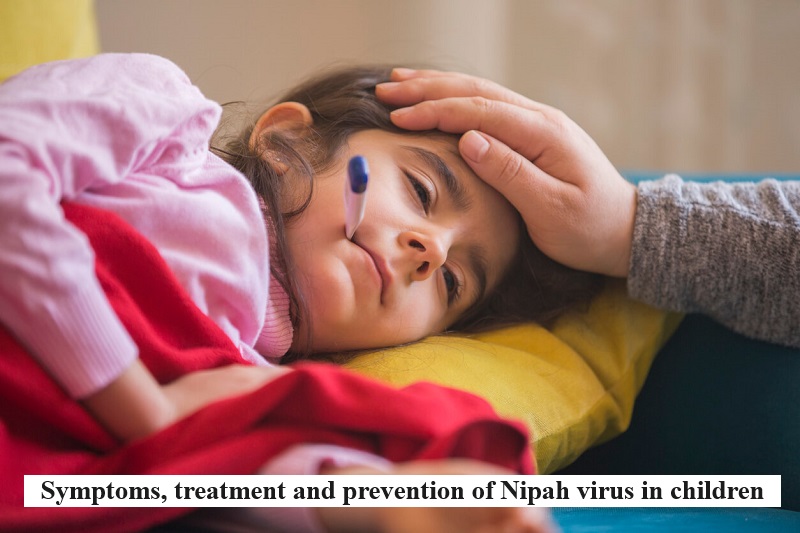
The Nipah virus, a zoonotic pathogen transmitted by bats, presents a dual threat as it is highly infectious and potentially lethal when contracted by humans. Children, in particular, are at risk due to their developing immune systems and close interactions with family members and caregivers.
Detecting the early symptoms of Nipah virus infection in children is crucial. Identifying these signs promptly, coupled with appropriate treatment and preventive measures, can effectively halt transmission and save lives.
Initial Symptoms of Nipah Virus in Children The early symptoms of Nipah virus in children may resemble other common illnesses, making early detection challenging. However, parents and caregivers should be vigilant if a child exhibits the following symptoms:
Fever and Headache: Nipah virus can cause persistent fever and headaches, unresponsive to common fever medications.
Cough and Breathing Difficulties: Following transmission, children may develop a persistent cough and experience breathing difficulties, which can be mistaken for a lung infection.
Vomiting and Seizures: As the infection progresses, children may suffer from nausea, vomiting, and, in severe cases, seizures, which is a cause for concern.
Muscle Pain and Weakness: The virus can lead to muscle pain and weakness, hindering a child’s mobility.
Treatment of Nipah Virus in Children Currently, there is no specific vaccine available for Nipah virus. Children suspected of having Nipah virus infection should be hospitalized for observation and provided with the following treatments:
Hydration: Maintaining proper hydration is essential. Children should consume coconut water and plenty of fluids regularly.
Respiratory Support: Children with breathing difficulties may require mechanical ventilation to assist with breathing.
Isolation: Infected children should be isolated to prevent virus transmission to others.
Efforts are ongoing to develop and assess immunotherapeutic treatments, such as monoclonal antibody therapies, to combat NiV infections. The monoclonal antibody m102.4 has completed phase 1 clinical trials and has been administered on a compassionate use basis. Additionally, the antiviral drug remdesivir has shown efficacy in nonhuman primates as post-exposure prophylaxis, potentially complementing immunotherapeutic approaches. It is worth noting that ribavirin, although used to treat a limited number of patients during the initial Malaysian NiV outbreak, remains of uncertain effectiveness in humans.
Preventing Nipah Virus in Children Measures to prevent Nipah virus infection in children are of utmost importance. Here are key steps to reduce the risk of infection:
Awareness: Children should be educated about the virus, emphasizing the importance of physical distancing and regular handwashing to prevent its spread.
Avoid Close Contact: Children should steer clear of individuals displaying respiratory symptoms, particularly if they have had contact with animals.
Thorough Handwashing: Encourage children to wash their hands thoroughly with soap and water for at least 20 seconds before eating or touching their face.
Recognizing Nipah virus symptoms in children and seeking immediate medical attention are crucial for their well-being. Strict adherence to prevention measures is essential to reduce virus transmission in communities. Public health awareness and preparedness play a vital role in controlling the spread of this deadly virus and safeguarding children.

Post Your Comments